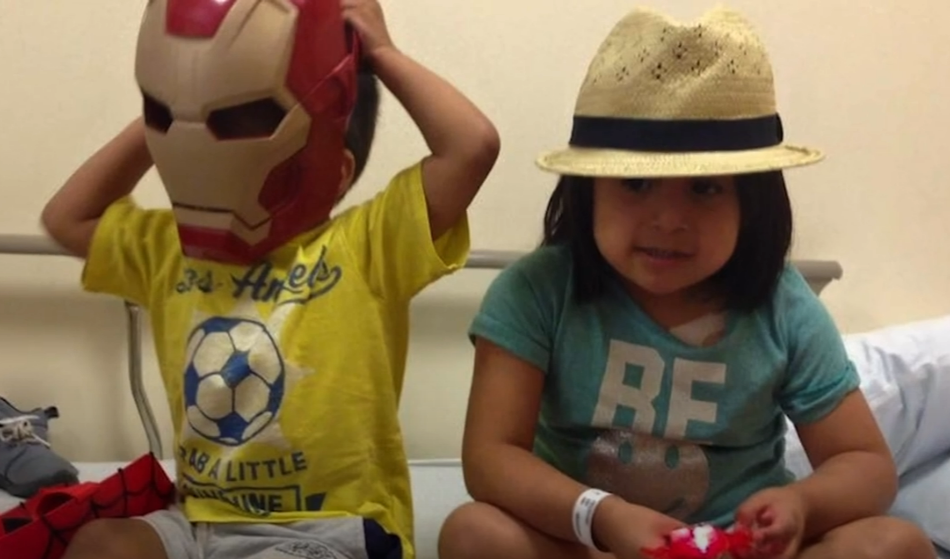
-
Understanding primary immunodeficiency (PI)

Understanding PI
The more you understand about primary immunodeficiency (PI), the better you can live with the disease or support others in your life with PI. Learn more about PI, including the various diagnoses and treatment options.
-
Living with PI
-
Addressing mental health
-
Explaining your diagnosis
- General care
- Get support
- For parents and guardians
-
Managing workplace issues
- Navigating insurance
-
Traveling safely

Living with PI
Living with primary immunodeficiency (PI) can be challenging, but you’re not alone—many people with PI lead full and active lives. With the right support and resources, you can, too.
-
Addressing mental health
-
Get involved

Get involved
Be a hero for those with PI. Change lives by promoting primary immunodeficiency (PI) awareness and taking action in your community through advocacy, donating, volunteering, or fundraising.
-
Advancing research and clinical care
-
Research Grant Program
-
Consulting immunologist
-
Diagnosing PI
-
Getting prior authorization
-
Clinician education
-
Survey research
-
Participating in clinical trials

Advancing research and clinical care
Whether you’re a clinician, researcher, or an individual with primary immunodeficiency (PI), IDF has resources to help you advance the field. Get details on surveys, grants, and clinical trials.
-
Research Grant Program
When doctors diagnosed TJ and Audrey Duggan’s newborn son Dean with X-linked severe combined immunodeficiency (SCID), a life-threatening primary immunodeficiency (PI), TJ Duggan said he shifted into “go-mode” focusing entirely on Dean’s health and finding the best treatment for him. Duggan pushed any stress and fear he felt to the back of his mind.
“While that works at the moment as far as getting your child where they need to be, it takes a toll on you. Maybe not in the moment, but you’re going to pay for it later,” he said.
Duggan shared his thoughts in a newly created video, “Parental Mental Health: Experiences Across the SCID Journey,” a SCID Compass resource designed to explore the effects of a SCID diagnosis on caregivers’ mental health and the importance of seeking help to process the medical trauma connected with it. The video is available in both English and Spanish.
Produced by SCID Compass partner RTI International, the nine-minute video features three parents discussing their children’s diagnosis, the stress it caused in their lives, and the help they sought to cope with the intense emotions. Interspersed with the caregiver stories is commentary by Jodi Taub, a licensed clinical social worker who specializes in working with patients and caregivers coping with living with chronic health conditions. Taub is also diagnosed with a PI.
Taub said when parents address their mental health, they become better caregivers to their children. They learn how to manage trauma responses and triggers, allowing them to continue to navigate their child’s medical care.
“Thinking about all the tasks of managing the medical care, thinking about managing mental health may seem like another task or another burden but it’s actually the opposite,” said Taub in the video.
“What happens with complex medical trauma, which is trauma that ensues from having a chronic disease that is ongoing that can be life-threatening, is that you still have to access the medical system and you still have to manage that your child might still be sick sometime, and you can be triggered again by those emotions.”
In Duggan’s case, the challenging emotions spilled forth after Dean transitioned from treatment and recovery to home.
“I wish someone would have told me (to find help) because after Dean engrafted and he was looking good and in the clear and released from the hospital, it all kind of hit me. I was struggling at work and it was just really hard to go back into the real world and having not discussed anything with anybody, you really kind of internalize all of that and it just kind of eats at you,” said Duggan.

was diagnosed with SCID.
Parent Mayra Simon recalls how, during her daughter’s SCID treatment, a social worker in the hospital hallway asked her how she was doing. When Mayra said she was doing great, the social worker pressed her further.
“She stopped me because she knew I was going through a lot, and she said, ‘But you’re not OK Mayra,’ and then I just broke down because she could see that in me. It took me a long time, but I finally sought help,” said Simon in the video.
Some forms of therapy helpful in managing chronic healthcare conditions include cognitive behavioral therapy, mindfulness-based stress reduction, and acceptance and commitment therapies. These modalities help caregivers better manage their thought processes and their overwhelming feelings, said Taub.
“It’s not uncommon if you are going through trauma that you may experience clinical anxiety and depression and the possibility of needing psychotropic medication is an option,” explained Taub.
Mental health resources that parents can use outside of supportive mental health services are self-care, mindfulness and meditation apps, mood trackers, and journals, said Taub.
“Talk to somebody, join a support group because you can discuss it with your significant other as much as you want but there are just some things that a traditional therapist can help you talk through and work out,” said Duggan.
“Be introspective about things, and it doesn’t have to be traditional therapy, it doesn’t have to be joining a support group, it can be any number of things. Everybody’s different, everybody handles it differently.”
Parent Christina Kettler, who learned of her son’s SCID diagnosis through newborn screening, said she reached out to a counselor she’d seen before her son was born, and took advantage of telehealth, speaking to her provider through video conference.
“That worked out fantastic. That’s how I’m able to talk about it now. It still wells up the feelings but it’s not as powerful as it was before,” said Kettler. “And it’s something I learned in counseling early on where you have to put your own oxygen mask on before you can help somebody else and that’s exactly what we knew we had to do to take care of our son.”
Simon said that although it’s taken her a long time, she’s finally accessed the support she needs to process her trauma.
“I wish I would have sought help from the beginning but you’re so busy trying to keep up with everything you don’t think of yourself. And now 11 years later you sit down and now it’s about you,” she said.
Your Situation
Topics
Diagnosis
Related resources

Why PI affects the skin: Common rashes, infections, and immune dysregulation (dermatology deep dive)

Decoding PI: Dermatological issues in PI

Primary immunodeficiency & dental health: Protecting your mouth when your immune system is fragile
Sign up for updates from IDF
Receive news and helpful resources to your cell phone or inbox. You can change or cancel your subscription at any time.





The Immune Deficiency Foundation improves the diagnosis, treatment, and quality of life for every person affected by primary immunodeficiency.
We foster a community that is connected, engaged, and empowered through advocacy, education, and research.
Combined Charity Campaign | CFC# 66309

